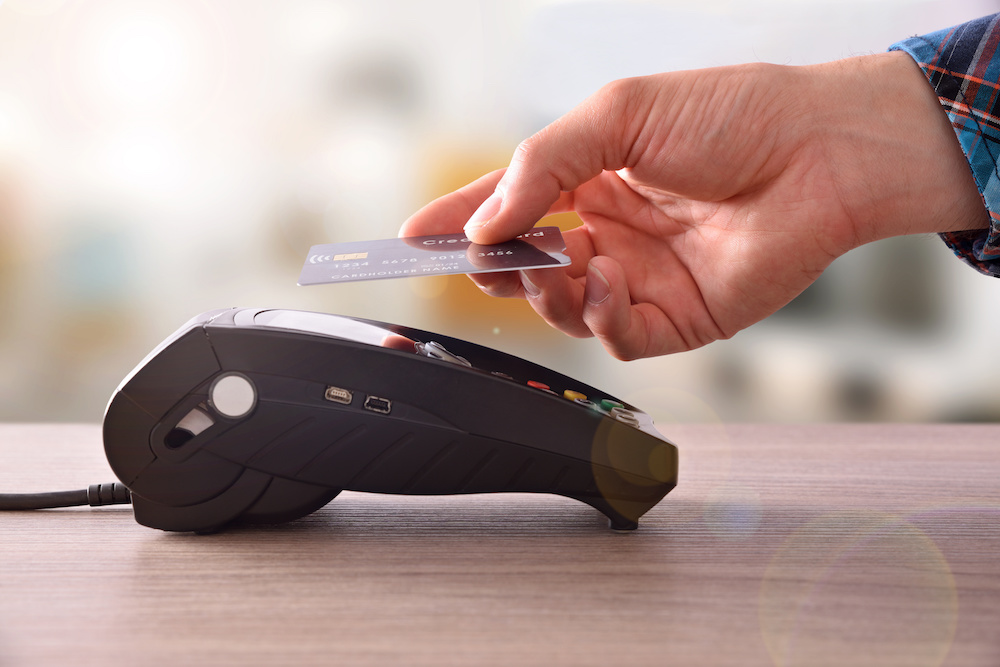 As we’ve discussed before on the Practice Index Blog, GP practices are increasingly having to think like businesses. That means focusing on return on investment, cutting costs and, crucially, looking for additional income streams.
As we’ve discussed before on the Practice Index Blog, GP practices are increasingly having to think like businesses. That means focusing on return on investment, cutting costs and, crucially, looking for additional income streams.
Revenue generation comes in many forms – but it’s only effective if you get paid for it – which brings us nicely onto the topic of this post – card payments. A recent poll on the Practice Index Forum suggests that it’s a topic that divides opinion. Overall, only 40% of respondents accept card payments, but those who do tend to be staunch advocates of the benefits.
Practice-by-practice decisions
When it comes to deciding whether or not to accept card payments, a practice’s structure very much comes into play. Dispensing practices, for example, will find card machines invaluable. The same goes for practices with busy travel clinic services or private services. Being able to take payment for services in advance can save plenty of admin headaches and reduce risk, which is clearly a benefit.
Another factor to take into account is the rising cost of treatment, which means charges are often higher than the amount of cash people tend to carry.
Commenting on the Forum, one PM said: “We dispense to 10% of our patients so we have quite a few low value transactions, but it’s more or less expected nowadays. We also do travel vaccines, including yellow fever, and of course private medicals, which cost more than many people carry in cash.”
Cultural shift
That comment also brings into sharp focus a culture shift that practices need to be aware of – the rise of the cashless society.
The UK is moving from a predominantly cash-based society to a card-based one. In 2015, card payments, fuelled by contactless technology, overtook cash payments for the first time – and the volume of card transactions has been growing steadily ever since. Just three years ago, cash accounted for 73% of all payments. Today it’s closer to 40%.
“We introduced card payments as we found more and more patients just expected to be able to pay by card, would not have a cheque book on them or enough cash to pay for medicals etc,” one PM told us. “I wish we had done it sooner as it’s much easier, there’s less cash to be banked and much less chance of us not being paid for work we have done.”
Pros & cons of accepting card payments
Pros
- Minimises risk of non-payment
- Reduces admin time involved with invoicing and chasing
- Customers expect it
- Enhances customer service
- Cheque book usage is being phased out
- Reduces cash needing to be banked
- Saves on bank cash handling charges
Cons
- Fees and processing charges can be prohibitive
- Security compliance needs to be in place and maintained
- Can be a pain to have relevant ports/lines opened up for card machine
- Fees on prescriptions can be viewed as a loss to the practice
- Requires reliable connections, which in some rural areas isn’t possible
Costs and fees
Continuing the theme of thinking like a business, if you do decide to start accepting card payments it pays to shop around for the best deal – and best set-up that suits you.
Traditional solutions are available from the major banks – do ask for reduced fees, which should be available to you – while more modern card reading technology is offered by dedicated card payment companies. These start-ups can be beneficial to practices as they can run without the need for a dedicated phoneline and port. Without naming names, one solution mentioned by a practice manager we spoke to works via a tablet or smartphone (which needs to be connected to Wi-Fi) and Bluetooth connectivity. These solutions can also accept Apple Pay and Android Pay, and offer contactless functionality too.
When shopping around for deals, don’t forget to contact your LMC, many of which have special deals in place with card payment providers.
Passing on fees
One of the biggest downsides of accepting card payments are the associated fees. Many practices have historically addressed this by passing on credit card handling fees to customers. However, as of January 2018, the charging of credit card processing/handling fees will be banned under a new law (debit cards are excluded).
Practices have a few options in this case. Where possible and allowed, prices could be increased to take into account the charges, an ‘admin fee’ could be added (be careful here as the law on it is unclear) or minimum card spends could be used (the level of which really depends on the fees you pay).
Compliance
The final point to think about is how you will be PCI DSS compliant. Most payment service providers will help you with this so, rather than talking about it here, check out this web page, which explains it all in more detail.
When it comes to the question of whether or not you should accept card payments, there’s no definitive answer. It all comes down to practice preference, but it’s definitely a topic worth thinking about.
What are your views on accepting card payments? Let us know by commenting below or head to the Practice Index Forum.
————–
Trending topics in the forum:





0 Comments